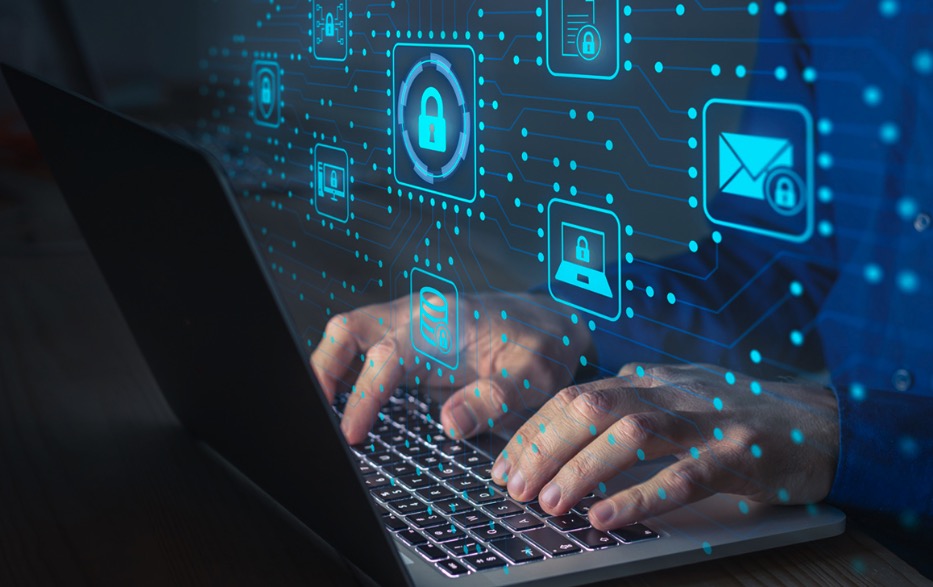Cyber Security Importance – In our increasingly interconnected world, cybersecurity has become a critical concern for individuals and organizations alike. As we rely more on digital technologies for our daily activities, the threat landscape grows, making it essential to understand the importance of cybersecurity.
This News article will explore what cybersecurity[1] is, its significance, and the implications it has on both individuals and businesses.
What is Cybersecurity?
Cybersecurity refers to the practice of protecting systems, networks, and programs from digital attacks. These attacks aim to access, modify, or destroy sensitive information; disrupt services; or extort money from users. Cyber Security Importance encompasses a wide range of measures, including hardware, software, and processes designed to protect sensitive data and maintain the integrity of computer systems.
Key Components of Cybersecurity
- Network Security: Protects networks from intruders, whether targeted attackers or opportunistic malware.
- Application Security: Ensures that software applications are secure from threats throughout their lifecycle.
- Information Security: Protects data integrity and privacy, both in storage and in transit.
- Operational Security: Processes and decisions for handling and protecting data assets.
- Disaster Recovery and Business Continuity: Strategies to restore operations after a cybersecurity incident.
Significance of Cybersecurity in Today’s Digital World

As our dependence on digital systems increases, the significance of cybersecurity cannot be overstated. Here are several key reasons why Cyber Security Importance is crucial:
1. Protection of Sensitive Data
Organizations and individuals handle vast amounts of sensitive information, including personal data, financial records, and intellectual property. Cyber Security Importance helps protect this data from unauthorized access and breaches.
2. Prevention of Financial Loss
Cyberattacks can result in significant financial losses. The costs associated with data breaches can include legal fees, regulatory fines, and loss of customer trust. Implementing strong cybersecurity measures can help mitigate these risks and protect financial assets.
3. Regulatory Compliance
Many industries are subject to regulations that require strict data protection measures. Non-compliance can lead to hefty fines and legal consequences. Cyber Security Importance helps organizations meet these compliance requirements and avoid penalties.
4. Safeguarding Reputation
A data breach can severely damage a company’s reputation. It can lead to a loss of customer trust and loyalty. By prioritizing cybersecurity, businesses can demonstrate their commitment to protecting customer data, which enhances their credibility.
5. Support for Remote Work
The rise of remote work has created new cybersecurity challenges. Employees accessing company networks from home or public Wi-Fi can expose organizations to risks. Cyber Security Importance measures are vital for securing remote connections and protecting sensitive data.
The Impact of Cybersecurity on Businesses

Businesses of all sizes face a variety of cyber threats that can impact their operations, reputation, and bottom line. Here are some specific ways Cyber Security Importance affects businesses:
1. Operational Continuity
Cyberattacks can disrupt business operations, leading to downtime and lost productivity. By implementing effective cybersecurity measures, organizations can ensure operational continuity even in the face of potential threats.
2. Customer Trust and Loyalty
Investing in cybersecurity fosters trust among customers. When customers know their data is protected, they are more likely to engage with the business and remain loyal over time.
3. Competitive Advantage
Companies that prioritize cybersecurity can differentiate themselves in the marketplace. A strong security posture can be a selling point, attracting customers who value data protection.
4. Risk Management
Cyber Security Importance is an essential aspect of risk management. By identifying potential vulnerabilities and threats, businesses can proactively address these risks and minimize their impact.
The Impact of Cybersecurity on Individuals

Individuals are also vulnerable to various Cyber Security Importance threats in their daily lives. Here are several ways cybersecurity impacts individuals:
1. Protection of Personal Information
Individuals store sensitive information online, including social security numbers, bank details, and personal communications. Cybersecurity measures help protect this information from theft and misuse.
2. Prevention of Identity Theft
Identity theft is a serious crime that can have long-lasting effects on victims. By securing personal data through cybersecurity practices, individuals can reduce the risk of their identities being stolen and used fraudulently.
3. Safe Online Experience
Implementing good cybersecurity practices, such as using strong passwords and enabling two-factor authentication, creates a safer online environment. This allows individuals to navigate the digital world with greater confidence.
Conclusion
In a world where digital threats are ever-evolving, the importance of cybersecurity is paramount. It plays a vital role in protecting sensitive data, preventing financial losses, and safeguarding the reputations of both businesses and individuals. As technology continues to advance, investing in robust cybersecurity measures will be crucial for ensuring a secure and resilient digital environment.
FAQs for Cyber Security Importance
What is the primary goal of cybersecurity?
The primary goal of cybersecurity is to protect systems, networks, and data from unauthorized access, damage, or theft.
Why is cybersecurity important for small businesses?
Small businesses are often targeted by cybercriminals due to their perceived lack of security measures. Cybersecurity is essential for protecting sensitive data and maintaining customer trust.
What are common types of cyber threats?
Common types of cyber threats include phishing, malware, ransomware, insider threats, and denial-of-service attacks.
How can individuals protect themselves online?
Individuals can protect themselves online by using strong passwords, enabling two-factor authentication, regularly updating software, and being cautious about sharing personal information.
What role do government regulations play in cybersecurity?
Government regulations establish standards for data protection and privacy, requiring organizations to implement cybersecurity measures to safeguard sensitive information.
Reference
- https://en.wikipedia.org/wiki/Computer_security
